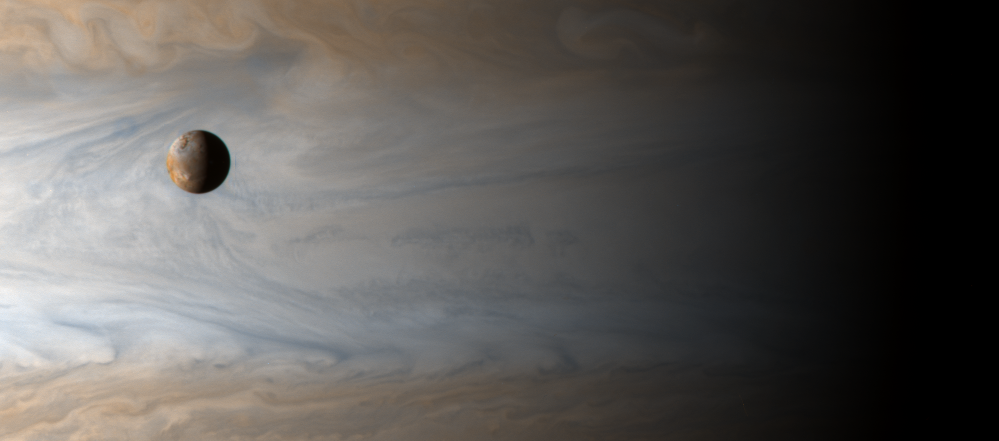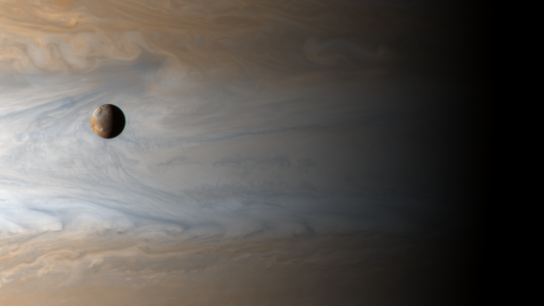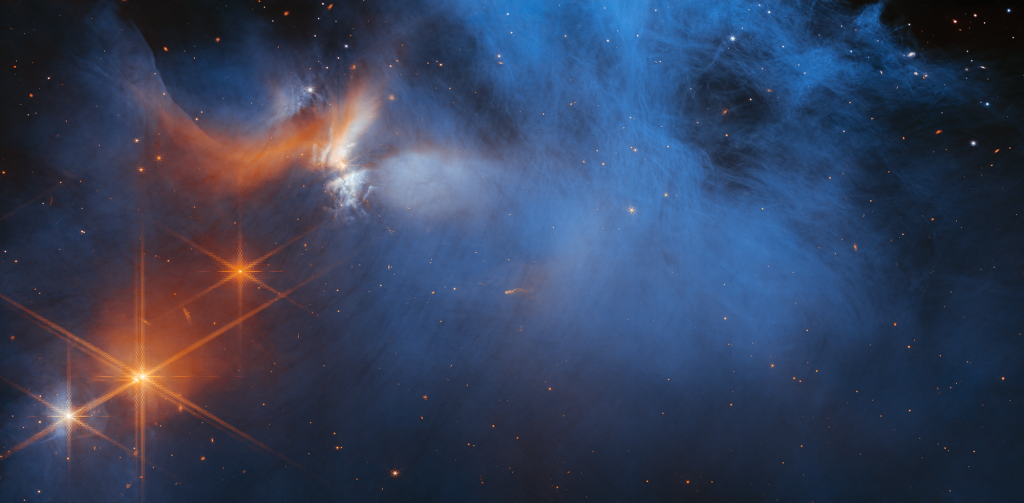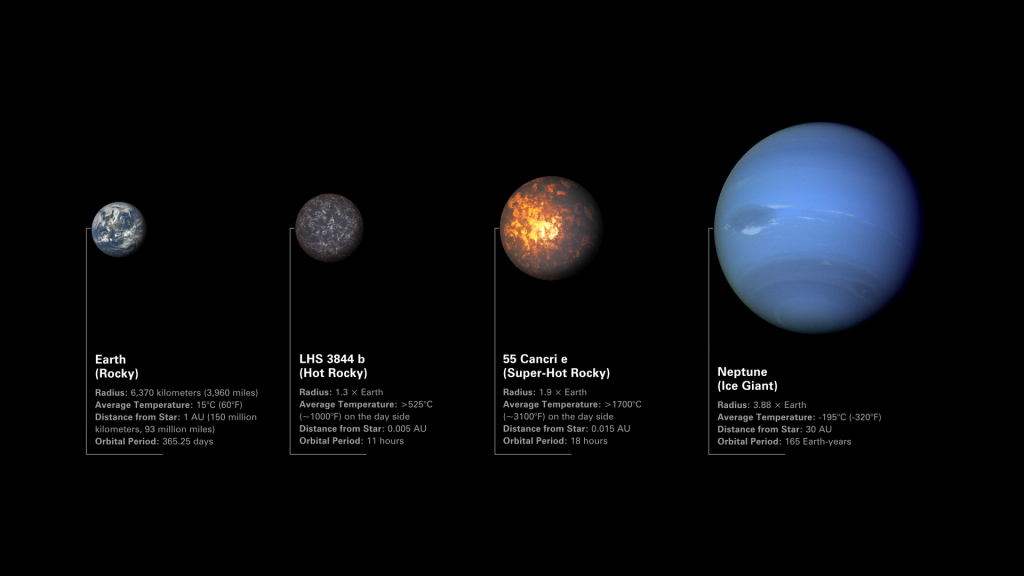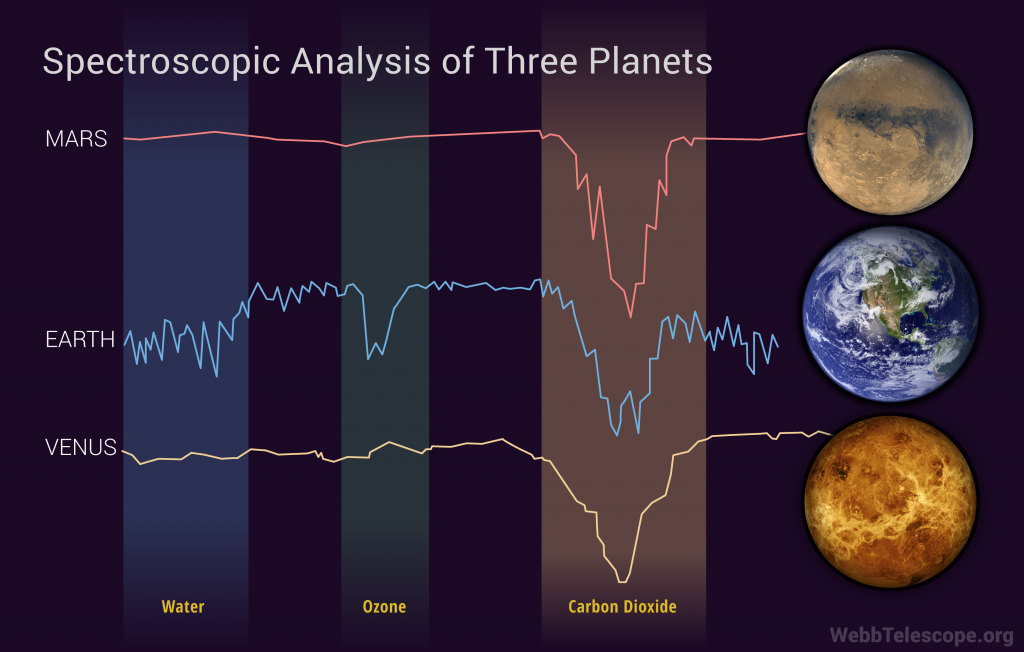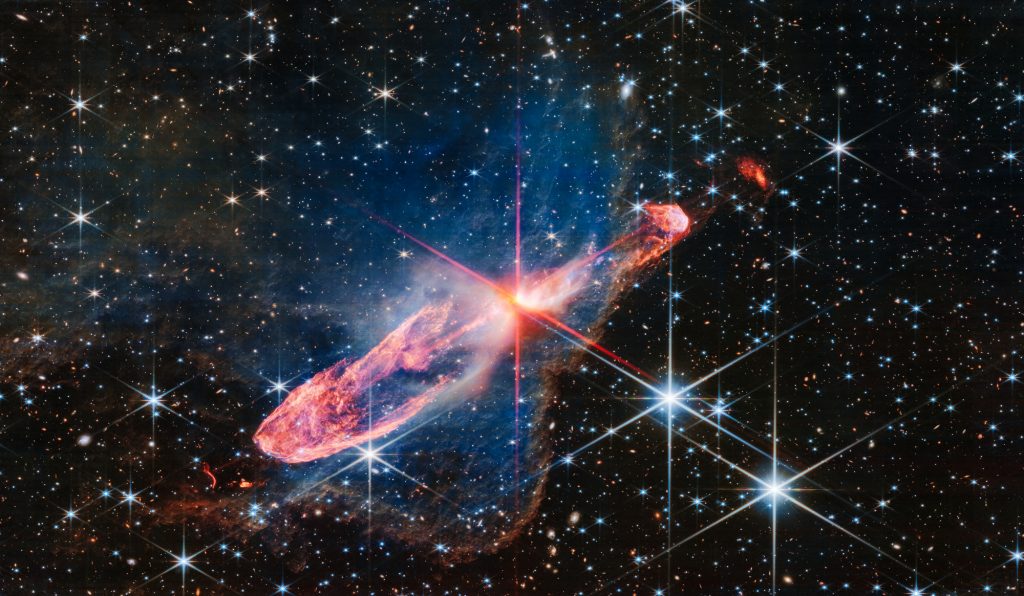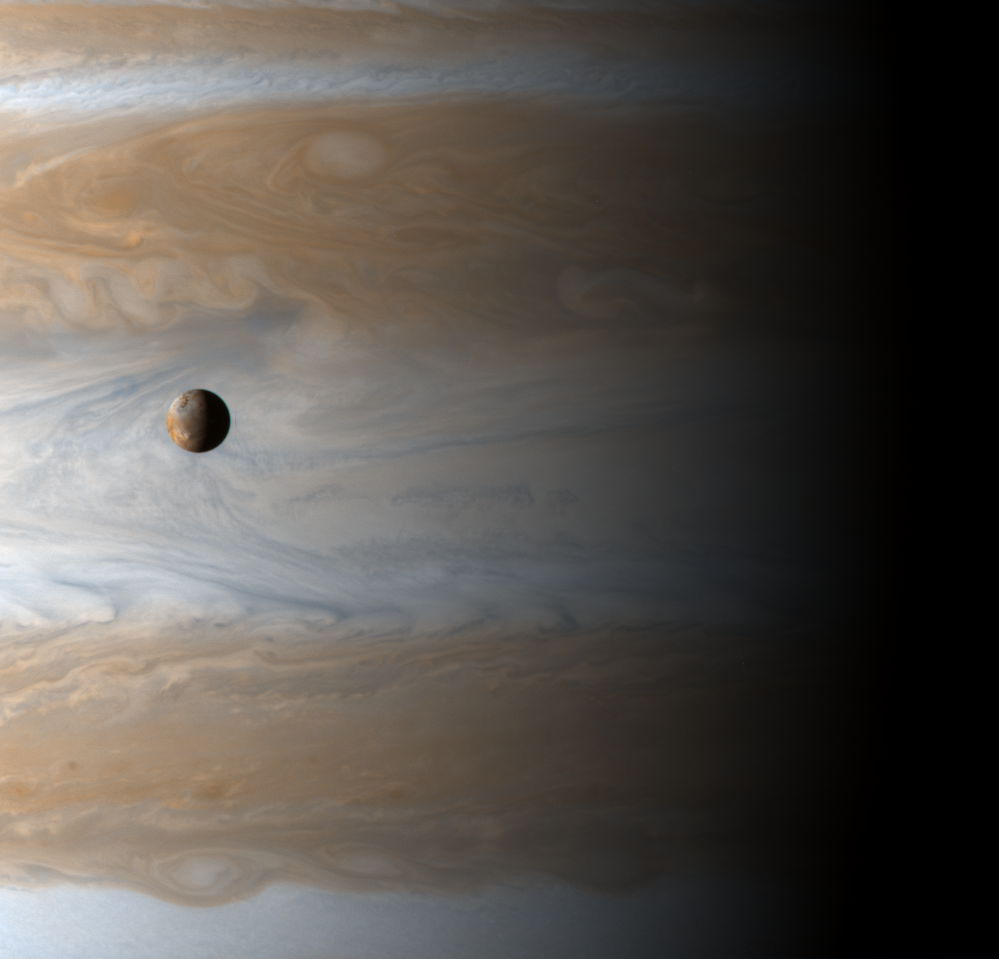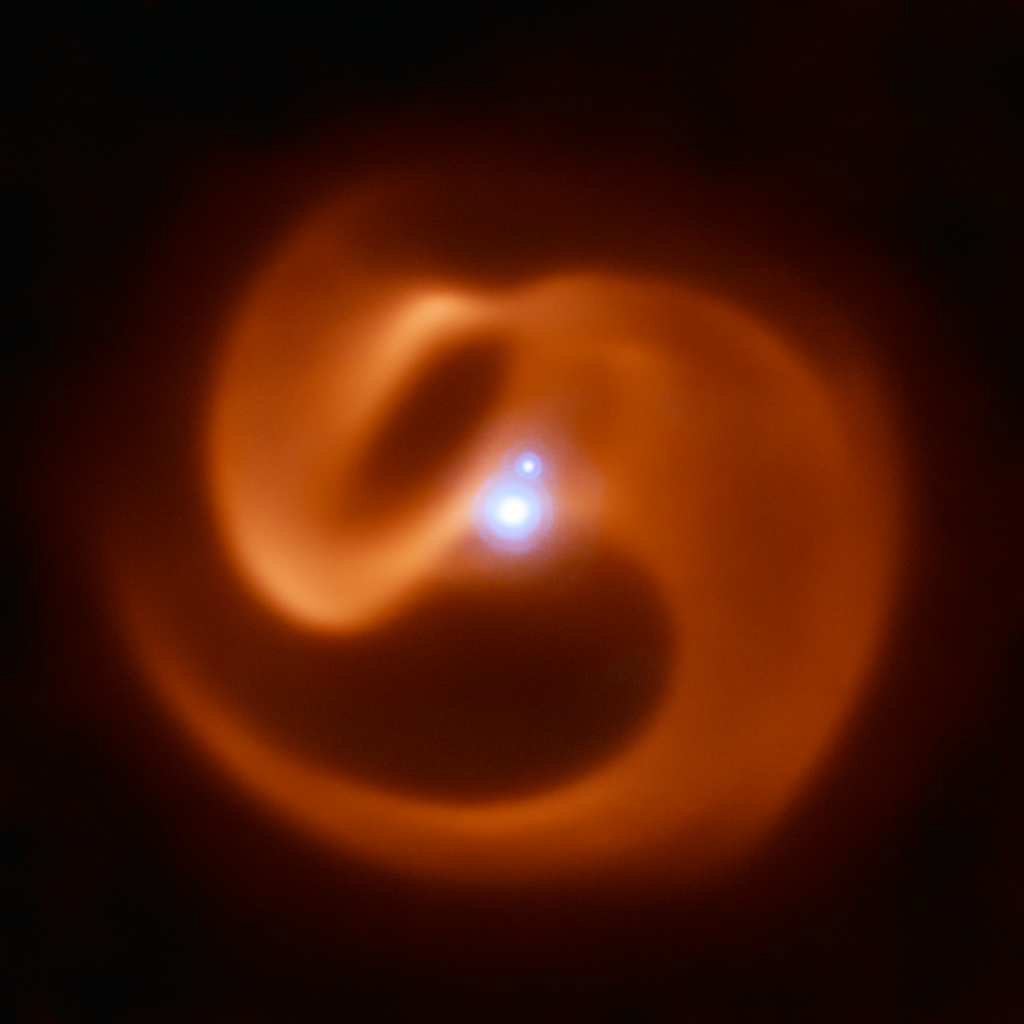Complexity and Surprise in the Ancient World and Beyond the Solar System
by
Ethics and Astrobiology is a collaborative project emerging from a reading group that explores astrobiological research on a temporal scale: what life was, what life is, and what life could be across the cosmos. In the gatherings of this reading group, the collaborators leveraged the interdisciplinary friction generated by thinking through such queries together as an occasion to create a space for ethical reflection. What follows in this series is an attempt to capture some of that intellectual magic for a broader audience.
In June 2023, group members Martin Devecka and Ruth Murray-Clay came together to continue a discussion that began at our conference “What Is Life? Ancient Answers to Modern Questions.” In this conversation, Devecka and Murray-Clay transverse time and space, exploring the many meanings of life from antiquity here on Earth to the possibility of life in the cosmos.
Martin Devecka: Hi Ruth, how’s it going?
Ruth-Murray-Clay: Hi Martin, I’m doing well, how are you?
MD: Have you been communicating with your guinea pigs?
RMC: Yes, they talk with me all the time! They’re very clear with their communication. One of them has learned to chew on the bars to show us when she wants a carrot. She’s showing us what she wants with our shared anatomy.
MD: Yes, it’s just such a challenge to converse with critters that don’t share our anatomy. I’ve been thinking a lot about bugs, and yelling at bugs. But I don’t think they can get what I’m saying, because they don’t have mouths. We’ve got ants invading our house.
RMC: So do you feel like you’re talking to yourself when you’re talking to them?
MD: Yes, I kind of do. I think it’s more for me than the bugs. But that gets me thinking about how crazy diverse life on Earth actually is, despite its origins in a common ancestor. And I wonder whether space astronomers looking at Earth would think that bugs and human beings actually descended from a common ancestor, whether that would be their default assumption.
RMC: Yeah, I bet it depends on whether on their world, all of the life also descends from a common ancestor. This isn’t something that humans thought throughout history, right? But now we know based on DNA analysis that they do.
MD: That’s why I was thinking about it, actually, because my favorite ancient dude Pliny the Elder does seem to think, like most Greco-Roman people, that bugs and humans do not share a common ancestor. They’re just different life forms that are unrelated.
RMC: And what about plants?
MD: Plants also unrelated.
RMC: But alive?
MD: Yes, unrelated but alive. Plants are alive in a cryptic way. They keep their life hidden, so it’s difficult to figure out how they are alive, but they are alive.
RMC: That sort of insight is what I’ve really loved about our interdisciplinary conversations. As a student of science in the 21st century it seems “obvious” that life shares DNA, and that’s the fundamental characteristic that defines what being alive is. But thinking about what life might be like on other worlds, unless panspermia is the answer, it seems very unlikely that DNA specifically is going to be “the” defining characteristic of life in the universe. And so I love hearing what you have to say about how people thought about what it meant to be alive before DNA was part of the conversation.
MD: Yes, it’s always fun to imagine planets where ancient ideas about what counts as “alive” are actually true.
RMC: So what did people think about what was alive in the ancient world? How did they know that things were “alive” with this cryptic life?
MD: There’s an analytical view about what’s alive that pretty much all Greco-Roman writers share from Aristotle onward, which is that something is alive if it has a soul. It’s called empsychos. I guess the etymological origins of animated or animacy in English come from this way of thinking about things “being alive” if they have a soul. But that’s just another way of saying that something is alive, right? Aristotle or Pliny will say, of things that they think are alive, that they are en-souled, that they have a soul.
RMC: So how did they decide which things were en-souled?
MD: That is a more difficult question, because it seems like the criteria for “being alive” can be polythetic. There can be many different criteria for things being alive, and they don’t always go together. Trees are alive because they grow. They change by growing from one moment to the next.
RMC: So did the ancients think that volcanoes were alive because they grow? Or how did they draw that distinction, if not?
MD: You know, there is a widespread view, in antiquity and up through the early modern period, that minerals are in a sense alive because they grow underground. Of course, we don’t think that minerals grow underground.1But in the earlier time when mineralogy was less well understood, there is a sense that certain types of rocks are alive and grow underground.
Orderly Rocks and Thermodynamic Cats
RMC: So was it fundamentally an intuitive sense about order, like what we would say as being “systems of decreased entropy?”
MD: I don’t know if order necessarily comes into it, because the most orderly life forms, the ones that sort of sit around and do nothing, are the ones that ancient writers are most likely to question the aliveness of. These are things like oysters, the ones that just sit there very calmly and don’t bug you.Their definition of life might almost be the opposite, in the sense of things doing what surprises you. Because when it comes to figuring out whether animals are alive, or explaining what it means that they’re alive, a criterion of self-movingness really comes into it. So a cat is alive in a way that a rock is not, because a cat will move around, and its movement will get determined by whatever the cat wants to do. Whereas a rock is only going to move in pretty deterministic ways, say if you drop it or kick it. It’s not automatos. It’s not self-moving.
RMC: When I think of “order” as a physicist, I think of doing surprising things. A rock that’s just sitting there, that’s not “orderly.” It’s just acting according to the tendency towards increased entropy. It’s not using energy or work to do anything particularly surprising, other than maybe weather and decay and become thermodynamically disordered. Whereas a cat is very orderly. But as a person, I agree that cats do not contribute to order in the household.
MD: Can you say a little bit more about what you mean when you say the cat is “extremely orderly”?
RMC: If the atoms in the cat were disordered, then they would all just be moving around at random. In a gas, all of your atoms or molecules are moving in random directions. And the system will tend toward this thermodynamic state where you don’t have coherent structures. Any individual atom could be replaced by any other individual atom. That’s a way of thinking about what that disorder is like. None of the atoms in the gas are doing anything special. Whereas in a cat, all of your molecules have to be arranged in a very specific way for the cat to be able to jump up on a table and knock things off and then contribute to the disorder of your household.
MD: So even though a rock does not necessarily have molecules that are moving around all higgledy-piggledy because it’s solid, because you could arrange those molecules in a bunch of different ways and still have a rock, you would say that a rock is less orderly than a cat.
RMC: Yeah, that’s what my intuition is telling me. I’m open to the idea that order is not the right word to use for that. But that’s where I’m coming from.
MD: Yeah, I think that makes sense. It is not a perspective that would have been open to Aristotle, for instance, because he didn’t have a good sense of what thermodynamics was, or even what “hot” or “cold” were, to get into thermodynamics by that epistemological route. So for him, order is just something that happens on a macro scale. And living things, let’s say, are “put together” in a way2 that you would call orderly, because Aristotle has a very mechanistic view of how animal bodies work. For him, the body is a kind of assemblage of levers and such. But the thing that marks those bodies off as alive—what separates an alive cat from a dead cat—is that living bodies are doing surprising things. They’re moving in unpredictable ways.
RMC: I love that. So it’s orderly in the sense that it’s organized. But it’s not only organized—and organization is against entropy, so it’s actually lower entropy—it’s also doing surprising things. That seems like a definition of life: “something that does surprising things.”
MD: “Organized to be an agent of chaos, in the case of cats, “yes! During our conference, Colin Webster gave a talk at the “What is Life?” conference on the history of organs and “organized” and all that kind of vocabulary. Aristotle plays a really important part in even thinking of bodies as having organs, as being organized in that sense.
Etymology of the Body
RMC: So the word organized comes from the idea of separating the body into organs that have different roles. Is that the etymology of the word?
MD: Right – the word “organize” starts off in a medical context in the Middle Ages and then gets used in a more general sense later on. So our bodies are organized into pieces.
RMC: Did they understand that different pieces of the body had different functions in the way that we do now in modern medicine?
MD: Again, I’m going to be leaning on Colin Webster’s forthcoming research here; he has a whole book about this that’s coming out soon. But not really at an early period. The Hippocratic corpus does not seem to appreciate that organs have functions, though everyone understands that if certain organs are blown up or cut out of you, you will die. Beyond that, organs are just sort of there in the body. Sometimes they get too much phlegm in them, and that’s a problem. But it’s not necessarily clear to Hippocratic writers what each organ does: what a stomach does, what a heart does, what a liver does.
RMC: But nevertheless, they understood that our bodies are functioning machines of a sort that did surprising things…So I’m wondering if taking that to life outside of Earth or outside of our solar system, how would you think about identifying life as “things that behave in surprising ways”, even if we don’t fundamentally understand the underlying science that drives their biology?
MD: Well, then we’d have to think about what “surprising ways” means.
RMC: Right, exactly.
MD: And what’s important there is figuring out the contrast between surprising and non-surprising, which seems like something that a physicist might have an idea about.
RMC: Yeah, you’re speaking my language! One of the things that I think is critical for finding life elsewhere is understanding what it means for a “surprising thing” to happen on a planet in a planetary system outside our solar system.
There’s a lot of the work that’s been done relatively recently in finding and understanding extrasolar planets. That research drives us in the direction to expect that—even if we just restrict ourselves to small solid planets like Earth—extra-solar planets should have very different chemical environments from each other. That variety will depend on when they form, it’s going to sort of depend on the temperature that they form in, what kind of elements they’re going to end up with. There are even some really minor elements like aluminum-26 that’s important to planetary evolution in the solar system but is not universal to all planetary systems.
MD: And aluminum-26 is a hot and spicy element that melts the nacho cheese inside of the planet, yes?
RMC: Haha, yes, that’s exactly right. There’s really good reason to believe that even in the absence of life, planets will be quite diverse. If we want to decide what’s surprising, the first thing that we need to do is understand what’s abiotically unsurprising.
MD: Is there such a thing as a normal planetary system, or an average planetary system?
RMC: Clearly, no. But there may be a few kinds of average planetary systems. We now know that about a third of the stars in the sky have systems very different from Earth. They have these super Earth planets very close in that are intermediate in size between Earth and Neptune. It’s still unclear if there are a lot of solar system-like systems out there. But there are at least a couple, and probably more than a couple, of ways that planetary systems can evolve. For instance, there are systems that have dynamically jumbled gas giant planets in their inner systems, which might be harder places for life to evolve, depending on how robust it is. The question is complicated enough that we’re not going to exhaustively predict the outcomes of planet formation that don’t involve life without going out and getting information about what we actually see. I don’t mean to imply that it’s impossible. We’re just going to have to be empirically driven in answering the question.
How We Observe Exoplanets: Current Detection Techniques
MD: Is that lack of information the reason we’re not sure how common solar system-like planetary systems are?
RMC: With our current detection techniques it’s very difficult to study solar system-type planets. Our gas giants are fairly far from their stars compared to the ones that we found. Our terrestrial planets, our rocky planets, are smaller than the super-Earth systems. So it’s really just a limitation of what we can see. We’re seeing this little edge of the planet population in the galaxy. And we’re trying to infer what’s happening in the rest of the planetary systems based on that. We don’t have the full picture yet. For instance, people will say things like, “most planets are super-Earths.” But that’s not necessarily true. It’s just that most of the planets that we can currently see are super-Earths, and we can see them because they’re easier to find.
MD: So to figure out what a totally boring and unsurprising planetary system would look like means taking more observations and also improving our observing equipment?
RMC: And if we’re really interested in habitable environments, or potentially habitable environments, then we need to know more than just the sizes of the planets. We need spectra of the planet’s atmosphere so we can try to understand the chemical components of those atmospheres. And of course we’d like more information than just that! We’d like pictures and all sorts of other information. At the moment, spectra are our best next step to figuring out what these other worlds are like. And I think it’s almost certainly going to be the case that there is not “a” boring planetary system. There will be a range of physical processes that happen in different environments that produce a range of outcomes. And I don’t know how many buckets there are going to be for that range of outcomes. We don’t know yet! Once we have that information, we should be able to start figuring it out. And then look for things that are weird and surprising, like you said, to try to find systems where life is.
MD: Do you think that that’s likely to happen in our lifetimes, that we’ll have that kind of observational capacity?
RMC: If exoplanets are as diverse as I expect, it means we’ll have to come up with an organizing set of physics—chemistry and geophysics—principles that together will help us understand why such planetary diversity exists even in the absence of life.
From the perspective of an astronomer, where the time scales are too long to observe how individual systems change over time, we try to look across different types of systems for a comparative perspective, and to use a survey of planetary systems to establish some predictable baseline outcomes.
For instance, maybe the existence of “life” will depend on whether that potentially Earth-like planet is orbiting with a gas giant planet like our Jupiter in the system. Maybe it’ll depend on other things as well. In other words, depending on how complicated it turns out to be, it’ll be easier or harder to build up that understanding of what the baseline is for solar system planetary formation. That range probably will be complicated enough that it won’t just be “everybody’s the same except for this one that has life.” We’ll have to understand the range of things that are expected, based on physical principles and how those principles vary across systems. Only then can we go ahead and use something like machine learning to try to search for things that are out of the “norm” within that framework.
But it’s hard to talk about exactly what that’s going to look like without having the information, because the physics and chemistry are so complicated that even with the huge range of possibilities we could come up with using our imaginations, we still couldn’t exhaust the range of all of the possibilities that are actually out there. So we really have to go look, to observe, and then feed those observations back into the theory. So it’s going to be a while before we are confident that we know what’s “unusual” and what is coming from life.
Earth and Jupiter: Life as Process of Planetary Systems
MD: I’m interested in something you seem to be suggesting, which is that habitability might be a phenomenon on the level of planetary systems, not just a single planet. You mentioned that it could be important, for instance, for planetary systems to have a gas giant, roughly where Jupiter is, if there’s going to be a habitable planet around where Earth is. Is that just an example that you’re making up on the spot, or is there sort of a hypothesis behind that for the history of life on Earth?
RMC: There is a hypothesis behind that, and I’m not sure if I believe it or not. The idea is that Jupiter has protected Earth from bombardment by small bodies from the outer solar system over its history. It could be important that Jupiter essentially cleared the field for Earth to not be as disrupted by impacts over its history. Another theory is that during its formation, Jupiter prevented a lot of small material from drifting through the system. Planets are formed in these gaseous disks of stars, and small amounts of solid material can drift through the gas toward the star. If you put a Jupiter in the gas disk, its gravity will trap a lot of that material, which then never makes it into the inner system.
One of the ideas floating around these days is that systems with gas giants might make small planets like Earth instead of bigger super-Earths, since the gas giant traps so much material that other forming planets won’t have as much left over to work with. We don’t really know the implications for habitability, but it might be that those bigger super-Earths have an easier time holding onto a dense hydrogen atmosphere from that early gas disk, which is very different from our atmosphere. So those may be less habitable, but they’re certainly less Earth-like! And those are two theories for why Jupiter might matter. In general, understanding the early gas disk is crucial for knowing the history of rocky planets like Earth and the formation environment they’re in. Gas giant planets can both impact the formation environment like I was just describing, but they can also be tracers of the formation environment, because most of the planetary mass in our system is concentrated in Jupiter. In that sense, even if the gas giant itself doesn’t impact the Earth-like planet, their presence or absence may be telling us something about the formation environment of that rocky planet, which could be relevant to life.
Astronomy and Classics: Shared Methodology
MD: And this is something you can’t really test by experiment, I’m guessing, because we don’t have a stellar nebula just lying around in the lab. But maybe you could check it on the basis of looking at other planetary systems and seeing how they shape up?
RMC: Exactly, so as astronomers, that’s what we do. We can’t test things, but we can try to look at a whole population of things and see how things are correlated with each other, and whether we might be able to explain those correlations in terms of causal history.
MD: This to me has always seemed like a strange point of overlap between astronomy and classics. They are both historical fields of study in a way that other sciences are not. You’re looking at stuff that’s there, rather than recreating stuff in a way that allows you to test hypotheses. The two disciplines are just looking at different sets of stuff.
RMC: I completely agree. With astronomy, often the path forward for feeling confident in conclusions is this: we look at what’s there, come up with a hypothesis based on that, then look at a much bigger sample, or at a different sample, or some different set of correlations, and see if they support that same hypothesis. One difference, maybe, compared to classics, is that as we build bigger and more capable telescopes, there’s generally more stuff to find.
MD: That’s also true of classics in different ways. For example, there are these scrolls from Herculaneum, which is one of the towns that was buried by the big eruption of Mount Vesuvius that destroyed Pompeii. The scrolls have what is for us some super interesting stuff written by an Epicurean philosopher named Philodemus. But the scrolls burned during the eruption, they got carbonized. So getting to read them today is a matter of coming up with better equipment. We’ve made advances in leaps and bounds in reading these scrolls, because of the development of new methods using x-rays and lasers that can read the scrolls without having to unroll them, and even through the use of machine learning more recently. There’s all sorts of stuff like, which is not legible at first glance, where the development of technological means for reading it has really helped us out.
RMC: I didn’t know that, how interesting.
MD: But what people don’t often do, at least in the parts of classics where I work, is what you were saying: develop hypotheses, and then test them on larger data sets. This can occasionally happen with stuff where we do have really large data sets, things like inscriptions, where new ones are being found all the time. But we’re not generally discovering huge new data sets like what we found out about exoplanets over the past 30 or so years.
But I asked this question about Jupiter because I’m beginning to question the wisdom of trying to revive Manichaeism and build a planet destroying ray, which the Manichaens obviously would want to build since they hate the planets. Especially if Jupiter does in fact provide us some protection from the objects of the outer solar system.
RMC: Okay, tell me more about Manichaeism.
MD: Like almost every ancient belief system, the Manichaeans in antiquity have taken for granted that the planets influence life on Earth, in a much more concrete way than just protecting us from bombardment by meteors. Because the planets either are actually gods, or have some kind of non-mechanical way of influencing the fate of individual peoples, the fate of empires, and all of that. This is the stuff that we might today call “astrology.” And this comes in a whole bunch of different flavors in the ancient world. The form of astrology that’s best known to us, the one that lies at the back of the newspaper—horoscopes and stuff—comes from a Greco-Roman context where some planets are good, some planets are bad, and various combinations of planets and constellations can be good or bad for you. The Manichaeans, on the other hand, think that all planets are bad. All the planets, except the Sun and the Moon, because the Sun is a door through which souls exit the universe—that’s how you escape this horrible universe in which we’re stuck—and the Moon is a boat that takes the souls there. All the other planets, on the other hand, are demons that are trying to make life harder for us. And so of course it would make life on Earth a lot easier if you could just blow up the planets.
RMC: So I’m curious about the origin of these ideas that the planets impact life on Earth directly. Clearly in ancient times, people spent a lot more time communing with the sky. It was just a lot darker, and people had a more direct understanding of how the motions of the objects in the sky worked as part of daily life. Were things like recurring meteor showers part of this history?
MD: One Greco-Roman point of view on meteor showers is that they do not come from space, but rather come from the ground. The planet Earth will occasionally fart out some gaseous emissions, which then rises to the crystalline sphere that encloses the Earth, which will flash. And that’s what we see when meteors are hitting the sky.
RMC: So then…no?
MD: So no to the meteor showers, yes to the sense of communing with the sky, but more than that, what seems to be really important is doing observational astronomy. The first places where theories of astrology develop are in Mesopotamia, and that seems to follow on people keeping long-term observations of planetary rising and setting, the kinds of ephemerides that you would use to figure out planetary orbits if you were not thinking in geocentric terms.
Astronomical Observations and Surprises
RMC: Does this come back to our idea of surprise? The planets are wanderers among the fixed stars, so once you had done enough observational astronomy to know that the other stars really were moving in what appeared to be a fixed way, and the planets were doing something strange, then the clear conclusion is that they must be alive.
MD: That makes a lot of sense, yes. The notion that the planets are divine and have minds, I think, probably does go back to that, because they’re not just doing what all the stars are doing, they’re moving on their own. There’s a really funny passage in a book which is supposed to be a refutation of astrology. It’s The Book of the Laws of the Countries, which features a famous and cool heretic named Bardesanes—though he’s probably not the author—where Bardesanes says: the planets’ paths are basically determined, but the planets do have a little bit of free will, and at the end of time, they will go to hell and be punished for every free will decision that they made. So there’s a sense that the planets do have minds and independent agency, even among people who also appreciate that they follow very determined courses.
RMC: That makes me think of what seems like a really plausible stop along our path toward understanding life outside of the solar system: what if there are just physical processes out there that we have no analogy for on Earth, so we don’t understand them. When we find them, will we think, “well, they must be alive!”
MD: That raises the question of whether we would be wrong in that case to say that they’re alive.
RMC: So you would argue that the planets are indeed alive because their orbital paths are surprising? As an astronomer, that might be a little bit of a bridge too far.
MD: Well, I wouldn’t say that for us, they are alive. The question I’m asking is whether it was wrong from the point of view of ancient astronomers or astrologers to say that the planet was alive…
RMC: That’s a really interesting question, and it brings us back to your favorite example of the oysters. Say a little bit about the oysters.
MD: Oysters are a classic kind of limit case for whether something counts as alive. Plato famously has a discussion where he says that if you’re living a life of pleasure, you’re living a life of the oyster, which is barely even alive. It’s just sitting there enjoying itself. Pliny says that the oyster is basically not alive. So people go back and forth on whether oysters count as alive. Certainly people think that the life of the oyster is not worth living.
RMC: In our current understanding of biology, oysters are indisputably alive. But it does make me wonder about your question, were the ancients wrong to interpret the planets as being alive? When we’re looking at life elsewhere, what are we really looking for? I think a lot of people wouldn’t be nearly as interested in finding oysters elsewhere as finding cats.
MD: I’d be, oysters are delicious. I would be interested in finding oysters elsewhere.
RMC: I would be super excited about finding bacteria elsewhere. But if what we’re looking for is intention, we might need to develop a new vocabulary. If we do find phenomena that don’t share the same DNA biology, that might open a set of different categories, more analogous to what you’re describing from the ancient world.
MD: Then we’d be talking about something like “lyfe,” the Wong and Bartlett term, something that’s a broader category than what’s on Earth. I think that would be a more helpful way of talking about it than using a term like “life,” which implies a similarity to what’s going on on Earth. And I do think people would be disappointed if they found oysters, you’re right, because oysters don’t do much. But maybe it’s true that life forms on other planets don’t do things, don’t move automatically, don’t do many of the things that we associate with life here.
RMC: We’re clearly going to need a broader category, a broader mindset, and a wider way of thinking about what it might be like to be alive. But what you said before made me wonder, are we also—in addition to that—going to need some more narrow categories?
MD: To describe particular forms of life that are distinct in ways that are even superficially visible?
RMC: Yes, kinds of life like trees that, how did you say it, “hide their soul,” as opposed to kinds of life like cats, where you can clearly see the cat deciding to knock things off the table intentionally. Things like oysters that maybe look like they’re just sitting there, but are nevertheless driven by chemical engines that share an underlying entropy-destroying structure.
MD: So you’re suggesting that if we discovered life on other planets, then almost certainly the view of someone like Pliny or Aristotle that life has many origins would be true. And then we would need a set of vocabulary that actually describes those different types of life.
RMC: Right, in terms of…I hesitate to use the word soul, but…what are they like? How do they experience existence? I feel like a tree must experience existence very differently from the way I experience existence. On the one hand, it seems silly to ascribe motivation to a tree, but on the other hand, trees clearly behave in ways that show some motivation. So what is that experience even like? I wonder if there’s a set of categorizations of the ways of being with the universe that’s distinct from the underlying chemical engine, or the physical engine, or even the silicon engine.
MD: Even in terms of experience of temporality, there is life that moves quickly, and life that moves slowly. Perhaps even life that moves too slowly for us to perceive it as being alive. Which leads me to wonder, do you think that it’s possible that there could be alien astronomers that would judge us not to be alive?
RMC: I wonder. If there were life forms that lived on a much longer time scale, we would appear to be like drosophila fruit flies. We consider drosophila alive, but also, we say “what a sad, brief lifespan. How could you possibly have any interesting experience in that short time?”
MD: Yeah, I wonder if it’s possible that alien observers who have a very different sense of intention and what counts as “surprising motion” than we do, would interpret earth life as simply governed by some equivalent of Brownian motion. We’re just doing random stuff. And the fact that we do surprising things and appear to be self-moving actually makes us more like dust particles than what would count as alive.
RMC: Or maybe even the opposite! Maybe we’re very predictable. I can predict with fairly good fidelity what I or others will do in the future. Not 100%, but in a statistical sense for sure.
MD: Some life form that actually has free will—whatever that would mean—would just look at us and say: well, that’s a planet full of machines. Or: that’s a planet full of meat-rocks that happens to be moving in chemically motivated ways.
Planetary Diversity and Earth-analogues
RMC: All of these questions return to the fact that we only have one example of a biosphere, and it’s very hard to extrapolate from a sample of one. Astrobiologists all know about this n=1 problem, and yet a lot of the public-facing narratives about searches for life really highlight the idea of finding another planet just like earth. I understand that from a public relations perspective, but it also demonstrates the lack of imagination. And I would like to think that the public has imagination!
MD: People have to be willing to be surprised or be open to being surprised, or even look for chances to be surprised! This does suggest a slightly different direction for the development of future observational equipment, not focusing so narrowly on the detection of Earth-like atmospheres, but doing something more like what you were suggesting, building a catalog of atmospheres and planetary system types.
RMC: If you took a survey of the astronomy community, I think you’ll find we’re always looking for surprises. That’s what really motivates us as scientists, and we absolutely want to build a catalog of the diversity of what’s out there. And the community would be thrilled to find that it’s not like what we expect at all. So just keep in mind that when actually designing these observatories, that is the goal. There is a subset of the community that is laser focused on finding exactly Earth-like atmospheres, but in my experience, it’s not the majority. It’s more like if you want to get into the newspaper, you speak the language of Earth-analogues. There’s a real difference between the inward facing and the outward facing motivation of the community. It makes me uncomfortable, but I’m not sure how to push back against that. It seems to be not so much a science problem, but a humanist problem. So what do you think? How do we change this communication narrative?
MD: I don’t know. Not knowing is exciting…for nerds. But it’s hard to draw a picture of, and it’s hard to film on TV. I think there’s a problem that has to do with the media involved in communication, which makes it very difficult to talk about science as a project without having some very concrete sense of what you’re looking for.
RMC: I suspect folks in the media would say that’s because that’s what people are interested in, the concrete results of scientific research. And if they write about not knowing, people won’t be as interested in what they’re producing. How do we frame that in a more compelling way?
MD: What people are interested in is not some kind of given. And so the media has a lot of blame to take for making people be interested or not in that stuff. The nerds have to make more television shows about interesting weird stuff that happens in outer space, and fewer shows about the politics of being on a spaceship!
RMC: I have to say that simultaneously, Star Trek: The Next Generation is the reason I’m an astronomer, but the show also was my moral education. So I think those things can go hand in hand.
MD: TNG is a perfect example of a show that does what I’m thinking about. And so much of the moral education for me at least had to do with the ways that you interacted with these different strange critters.
MD: Part of the problem has to do with the representability and understandability of the experience of being on those other planets. I’m not sure how to get around those limitations, but it connects to something you were talking about before: the worlds of experience of these alien life forms would be unlike anything on Earth. This is difficult to communicate, especially in film, a medium that assumes the perspective of a human-like eye. I’m not really sure what to do about that…I guess finding some kind of a life form that was very weird and not earth-like would definitely change the picture. So the job of astronomers is just to find life. And then the problem of public interest in it will probably be fixed.
RMC: I think you’re right. If we find it, and know that we found it, and can prove that we found it, then that will solve the problem. I worry that the challenge is knowing and proving that we found life. I worry that the public will at some point conclude that we’ve been selling a bill of goods, but if we found life in any form before then, then maybe that problem will disappear.
MD: And as you said, the interest of the public can be perpetually sustained by imagining that we’re gonna find another earth. People just like to imagine that they could be there themselves, even though that’s probably unrealistic.
MD: I have one more question. Going back to the planet destroying ray: would you support building that in order to do experiments in solar system science? Wouldn’t you be interested in seeing whether Jupiter does in fact protect us from meteorite bombardment?
RMC: No, earth is my favorite planet. I don’t wanna screw it up.
MD: So there is some limit to the ambition of experimental science.
RMC: And Jupiter is beautiful. I don’t wanna destroy it.
MD: Jupiter is beautiful, but it’s evil, right? That’s the problem with planets. They may look nice, but they’re responsible for so much human suffering.
RMC: I think I’ll just come back to this: the Earth is my favorite planet. And I don’t want to do anything that has the potential to screw it up.
MD: Yeah, this one’s nice. It’s a good planet. Other planets don’t have to be like earth, but it’s a good one to be on.
This essay is part of the Ethics and Astrobiology series, funded by UCHRI’s Recasting the Humanities: Foundry Guest Editorship grant.
Notes
- e.g. Pliny, Natural History
- In the recorded interview, MD’s cat appears, as if to assert itself as a producer of disorder.
